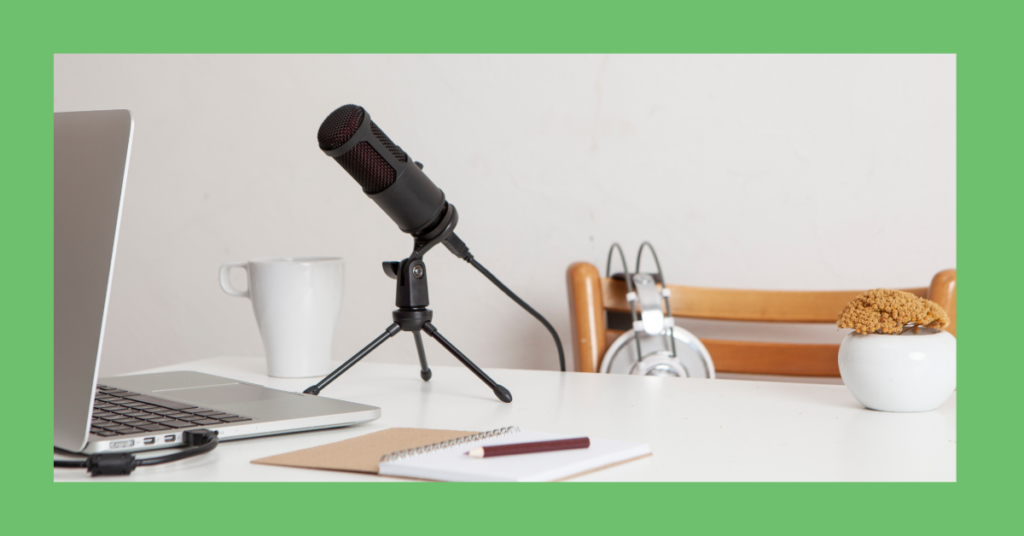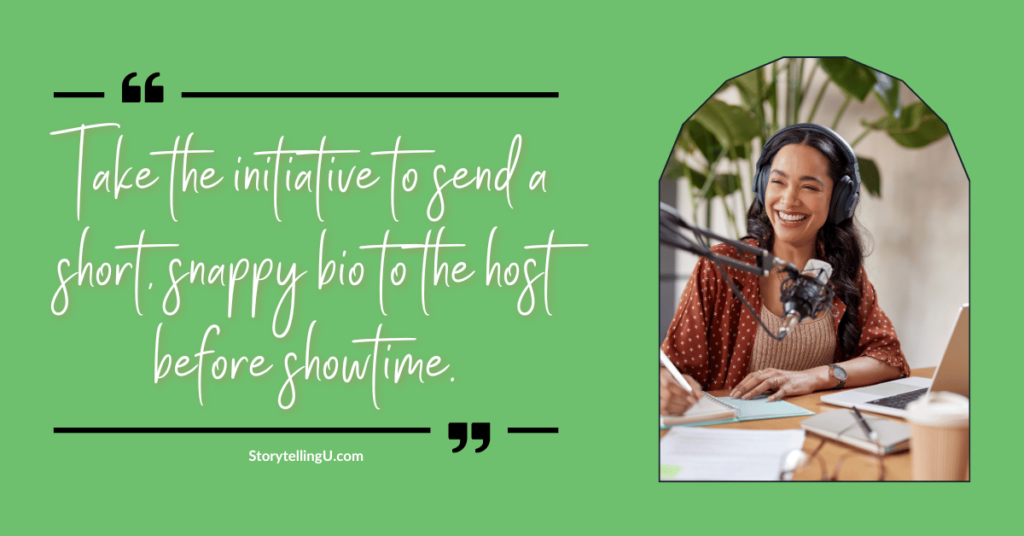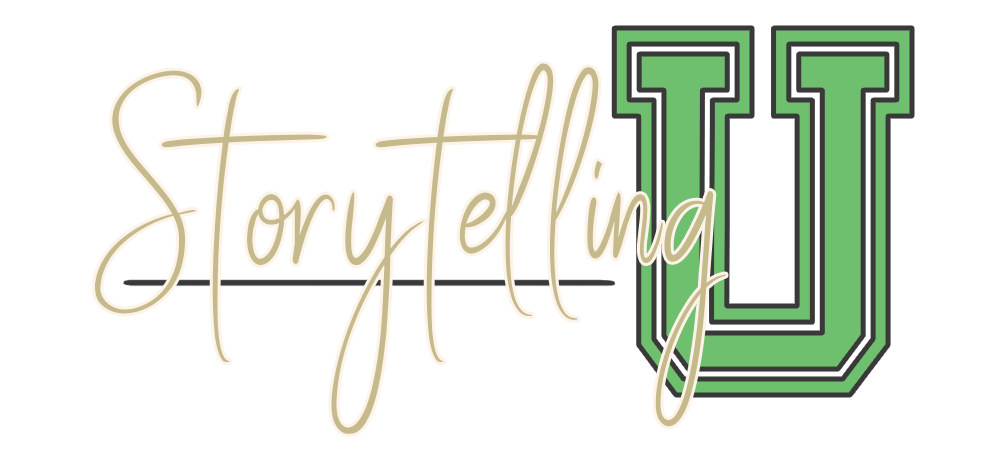How to be the World’s Best Podcast Guest

Your hard work has finally paid off.
After days, weeks, or even months of sending endless outreach emails and media pitches, you’ve landed a spot on a notable podcast in your niche.
It’s a big deal. And you’ve got the nerves to prove it!
This is your shot at sharing your message with a new audience and gaining the exposure you need to scale your business and grow your personal brand. You’re determined not to mess it up.
Want to settle those jitters and ensure your podcast appearance goes off without a hitch?
I’ve got you—here’s everything you need to know to impress your interviewer and be the best podcast guest possible.
Don’t go in blind
Uncertainty begets nervousness. It’s natural. People tend to fear what they don’t know (thanks, evolution).
Even worse, though, it’s a one-way ticket to a subpar performance. Like taking an exam you haven’t studied for, you have no idea what to expect or what questions will come up.
Give yourself the best shot at success by preparing diligently for your podcast appearance. Get to know the show beforehand. Listen to past episodes (paying specific attention to the most popular ones to see if you can pick up on what made those guests so successful), research the host, and identify the target audience.
Ideally, you would’ve done these things before you pitched the podcast, but a pre-interview refresher is always a good idea.
Oh, and don’t forget to familiarize yourself with the podcast’s format, tone, and style. If it’s live, pre-recorded, with video or without—these details are all important to know. With this information under your belt, you’ll eliminate any uncertainty and (with any luck) feel far more confident going into the interview.
Inquire about the questions
Failing to prepare is like preparing to fail, right?
With that mantra in mind, it’s worth getting in touch with the host to see if they typically send their questions through before the interview. If so, you can review them and prepare your answers in advance.
This might feel strange, but this sort of podcast preparation is standard practice—it benefits both parties.
You’ll know what kind of questions you’ll be fielding, leading to less anxiety and a better all-around performance on the day of the interview. And the host will take solace in knowing they’ll have a smooth-running, value-packed show to deliver to their audience.
Take note, though:
There’s a difference between preparing answers and memorizing responses, like actors learning a script. Take that approach and it’ll be much harder to be your authentic self on the show. Your answers will sound stilted and rehearsed rather than conversational.
You’ll also set yourself up for trouble if the host throws a curveball question your way. All you need is a good idea of what anecdotes you want to share, tips you’ll give, and points you wish to make. More on that below.

Consider your talking points
Common though it is, not all show hosts send out questions beforehand—some prefer a more natural, free-flowing conversation instead.
If that turns out to be the case, then I still encourage you to think about possible answers and talking points ahead of time. Write them out as well, ensuring you have a few go-to stories that spark conversation and go down well with an audience. (Again, these shouldn’t be scripts, but simple notes to review and reference if needed.)
Here’s why:
Contrary to what you might think, the most adept podcast guests on the planet (people like Seth Godin, Tim Ferriss, and Marie Forleo) aren’t just born that way. As charming, charismatic, articulate, and quick-thinking as they come across on air, the real reason behind their seemingly natural talents often comes down to practice.
They’ve appeared on (and hosted) podcasts countless times. That means they’re comfortable on camera and talking into a mic. They’ve already overcome those novice nerves. Moreover, they’ve been asked the same questions and given similar answers time and again. Each one of these experts knows their brand, talking points, and audience like the back of their hand.
By thinking ahead, doing thorough podcast prep, considering possible answers, practicing your responses, and writing everything down, you’ll appear as calm, confident, and collected as they do.
Send your (quick) intro
Some hosts choose to prepare their own podcast interview introductions for their guests, but you should never make that assumption. Take the initiative to send your own short, snappy bio to them before showtime.
Doing so will save them the time and effort of putting it together—and ensure that they’re presenting you accurately and in the way you want to be presented.
As for the bio itself, strive to make it as concise as possible without sacrificing any key details. Trust us, no host wants to receive a whole page to read on air. It puts them in an awkward spot: cut sections out and risk upsetting the guest or deliver a wordy intro that could make their audience lose interest.
As for the content of your intro, the goal is to let listeners know why they should care what you have to say, without spending a lot of time doing it. Get them up to speed with some key nuggets about who you are and what you do (i.e., how you can help your listener), alongside a few credentials to add that all-important credibility factor.

Send a picture and your contact info
Since you’re already putting together an intro for your host, take a moment to send them a high-quality photo of yourself (or a few of them) that they can use when promoting the episode. This might not be necessary for bigger shows where hosts may arrange pro photoshoots. In most cases, though, you’ll be expected to send your own.
Other things they might need beforehand include links to your social media channels and website—basically, all the places you live or hang out online. You could also share a link to a free resource (with email opt-in, of course) where listeners can engage with your content on a deeper level. Hey, look at you, you’re building a community!
Practice your elevator pitch
Wait… didn’t you just say the host would be introducing me? While it’s true that the host will say a few words about you, they’ll likely still ask you some variation of the age-old conversation starter…
“So, tell us, what do you do?”
This question usually comes right after the host’s introduction and is the perfect opportunity to get rid of jitters and jumpstart the chat. But if you find yourself stumbling over your words or rambling too much, it could just be a confidence killer, setting you up for a not-so-great interview.
That’s where the elevator pitch comes in. If you’re not familiar with the term, an elevator pitch is a quick and snappy way to introduce yourself and share a few key points about what you do.
Having been on both sides of the podcast table (that is, as “interviewer” and “interviewee”), I know from experience how crucial it is to be prepared with an elevator pitch that clearly and concisely communicates your message.
Again, just like the introduction you shared with the podcast host, your elevator pitch shouldn’t drag on (elevator pitches are generally about 30 seconds long). Otherwise, you risk losing the listener’s interest or confusing them, and that’s hardly an ideal way to start the episode.
Consider the practicalities
As you’d expect, there are numerous practical considerations to keep in mind throughout your bid to be the world’s best podcast guest. Here are the main ones:
Go somewhere quiet
If the podcast’s going to be done virtually (as most are), then make sure you go somewhere that’s quiet and distraction-free. Trust me, there’s nothing worse than having a guest with too much background noise. You can edit some of it in post-production, but that’s an extra burden on the host—and good luck getting invited back.
Likewise, from your perspective, the quieter the environment, the easier it’ll be to focus on the questions and deliver all-star responses.
Use headphones
Have you ever seen video footage of a podcast being recorded? (Conan O’Brien Needs a Friend, perhaps?) One of the first things you notice is everyone—both Conan and his guests—is wearing headphones. You don’t need anything quite so fancy, but I do suggest you use them.
They provide various benefits. Firstly, they can help you get in the zone and focus on the podcast conversation. Not only that, but they’ll also eliminate feedback and create a cleaner recording. And trust me, the show host will love you for that.
Curate your location
If the podcast interview will have a video component, then take a moment to ensure everything in your background is professional (or, rather, appropriate for the podcast you’ll be appearing on), aligned with your brand image, and otherwise devoid of embarrassing or confidential items.
Make sure you also have decent lighting in place. You don’t need expensive, studio-quality lights, but your setup should present you in the best light possible (literally and figuratively). Pro tip: Consider having something you’re promoting (like your new book!) on display, too.
Update your software
Lastly, avoid unexpected technical issues by keeping everything on your computer up to date. Update all your software now while you’re thinking about it (okay, right after you finish this post…). Doing a trial run with the software and equipment you’ll be using before the show starts is also a good idea.
Spread the word
One final note (and it’s an important one): your work isn’t done after the interview.
Being a great guest means sharing the podcast with as many people as possible. With the recording part over, it’s time to promote your interview to your audience on social media, write about it on your blog, and tell your friends and family to listen in. You could even go the extra mile and pay for Facebook or Instagram ads.
Spreading the message far and wide does two things:
- First, the host will appreciate it, which is great for your reputation and referral potential. (More podcast appearances? Heck yes!)
- And second, you build social proof by sharing your expertise on an established podcast. (After all, the host is essentially endorsing you by featuring you as a guest.)
Be the best possible podcast guest
There you have it. Some tried-and-true advice for being the world’s best podcast guest and delivering a stellar performance every time.
Any nerves you’re feeling around an upcoming podcast feature are 100% normal. But if you follow the advice outlined in this article, I promise you’ll knock this thing right out of the ballpark.
Preparing for your first (or next) podcast interview? Share your favorite tip from this blog post—or one you have in your own back pocket—in the comments!
